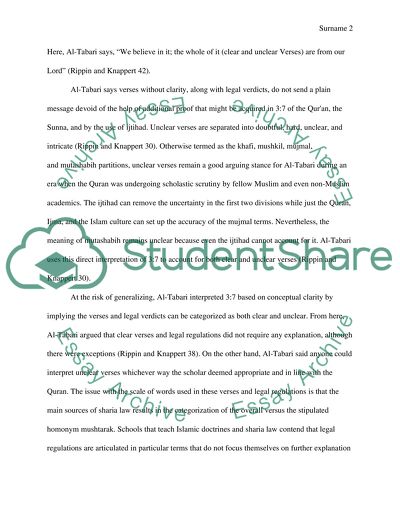Cite this document
(“Abu Ja''far al-Tabari on the interpretation of Qur''an 3:7 from TSSI Essay”, n.d.)
Retrieved from https://studentshare.org/religion-and-theology/1660634-abu-jafar-al-tabari-on-the-interpretation-of-quran-37-from-tssi
Retrieved from https://studentshare.org/religion-and-theology/1660634-abu-jafar-al-tabari-on-the-interpretation-of-quran-37-from-tssi
(Abu Ja''far Al-Tabari on the Interpretation of Qur''An 3:7 from TSSI Essay)
https://studentshare.org/religion-and-theology/1660634-abu-jafar-al-tabari-on-the-interpretation-of-quran-37-from-tssi.
https://studentshare.org/religion-and-theology/1660634-abu-jafar-al-tabari-on-the-interpretation-of-quran-37-from-tssi.
“Abu Ja''far Al-Tabari on the Interpretation of Qur''An 3:7 from TSSI Essay”, n.d. https://studentshare.org/religion-and-theology/1660634-abu-jafar-al-tabari-on-the-interpretation-of-quran-37-from-tssi.


